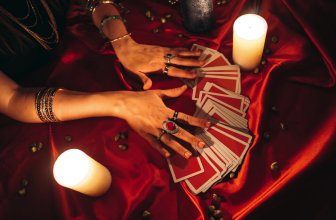
Do you know someone that has a broken heart? Or are you someone that has hurt someone else? Have you ever been hurt? Being hurt is part of life and everyone seems to go through a broken heart at least once in life.
When a heart is broken, we hate to see people go through that. We want to help to change it and if it has happened to us, we want to figure out how to stop the pain.
Forgiveness
One problem is that when we get our heart broken, it is hard t forgive. This doesn’t even have to be someone that has been abused or injured but it can be someone that is just hurt in their heart. People that get hurt try to stay out of the chances of that happening again.
Once we decide to forgive the person that has hurt us, we can begin to heal, and we can learn to move on. We are free to choose to forgive or to hold on to the pain.
Feelings of Unforgiveness
It is a good thought to want to forgive someone but sometimes we have the feelings of unforgiveness in our heart. This could be because we are selfish, or it could be because we are just not strong enough to forgive.
If you are someone that has been hurt and you go to a psychic, chances are that you will find that you have come from a background of bad things. This can be a reason why being unforgiving can be easier. But the problem is, we have to learn to forgive to grow.
Using Tarot Spreads for Forgiveness
There are tarot spreads, such as the five-card spread, that can help you to get over unforgiveness. When this happens, there has to be a place for meditation and for reflection.
Card One: What Needs to Be Released?
If you draw the Eight of Cups, you will see that you can find out what is going on in your life that has to be released.
Card Two: What is My Life Limiting Me In?
The Moon card reversed can tell you what you are dealing with such as fear, hurt and things in your past that are limiting you.
Card Three: What Do You Need to Know?
The King of Cups is one that can help you to see what you need to know about your life. You might need to change your perspective and be more kind and understanding towards who you are. Are you empathetic? Now is a chance to change.
Card Four: Finding Your True Self
The Sun card is one that can help you to find out what your mind, body and soul needs. Do you need to have more energy or are you someone that has went through a hard journey? Maybe you have strong emotions, and you need to get them in check.
Card Five: What Can I Accept as Needing Work?
The Justice card can help you to be fairer with yourself. Most of the time we mess up and we make mistakes, but we deserve to have a chance to be kinder to ourselves. Once you realize that you have to take responsibility for what you have done, you then have to learn to forgive yourself.
You have to learn to give yourself a break so that you can be happy. No one is perfect and no one is going to live the best life. We are all a work that has to be worked on over time. We are not perfect in our spirit man or our physical man. We have to learn to find support and to find people that will inspire us.






‘Finding your true self’ is a universal journey, often obscured by societal expectations and personal fears. The Sun card’s symbolism as an enlightening force serves as a reminder to embrace authenticity in all its complexities.
The mention of tarot spreads as a tool for reflection introduces an intriguing intersection between spirituality and psychology. One must consider whether such practices genuinely facilitate emotional growth or merely serve as comforting rituals.
That’s an excellent point. While some may find solace in tarot, it raises the question of whether reliance on external symbols detracts from personal accountability in the healing process.
‘The Justice card’s role in self-reflection highlights the importance of equanimity in personal growth. Acknowledging one’s own missteps while fostering self-compassion can lead to a more equitable relationship with oneself.
‘What needs to be released?’ resonates deeply within the context of emotional health. Understanding our limitations can indeed pave the way for more fulfilling connections with others once we confront our past with honesty.
The exploration of forgiveness as a pathway to healing is both profound and essential. It raises critical questions about the psychological barriers we impose on ourselves, often stemming from past traumas that hinder emotional progress.
Indeed, the interplay between self-forgiveness and external forgiveness is fascinating. It suggests that our internal conflicts can significantly influence our relationships, necessitating deeper introspection to foster genuine healing.
This discourse on unforgiveness underscores a critical aspect of human experience: our inherent struggle to let go of pain. It’s imperative that we engage in practices that cultivate empathy towards ourselves and others for true liberation.
‘Feelings of unforgiveness can create a cycle of emotional stagnation. This article prompts us to reevaluate not only our responses to being hurt but also how we approach forgiveness as an active choice rather than passive acceptance.